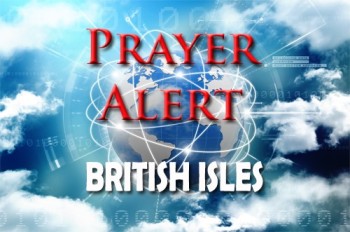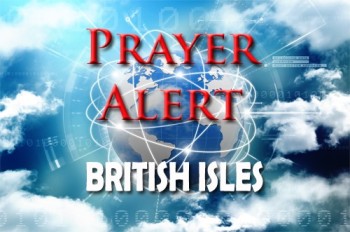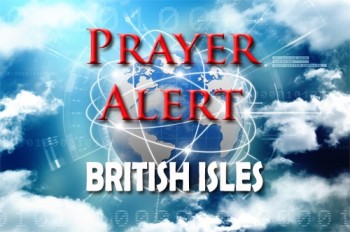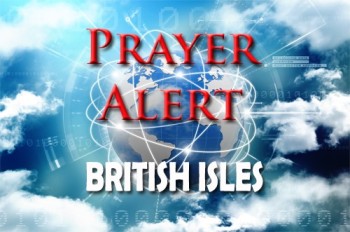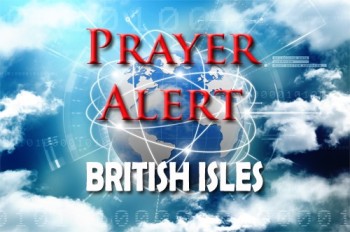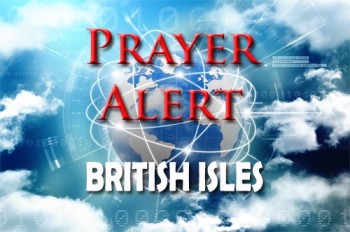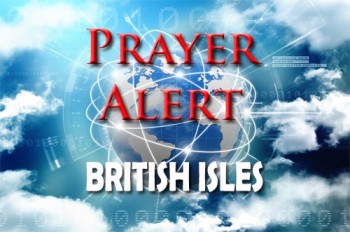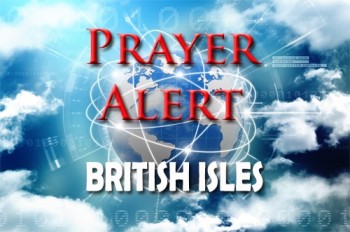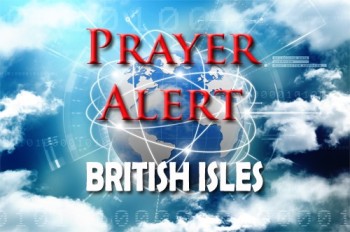Displaying items by tag: Church of England
Justin Welby: ‘God is greater than our fears’
The Archbishop of Canterbury, in his presidential address at General Synod, illuminated the enduring message of faith and resilience amidst global turmoil. He highlighted the pivotal role of faith in navigating through adversity, drawing from the Psalms' portrayal of adversity. Reflecting on global turmoil, from the war in Ukraine to the forgotten conflicts in Myanmar and Sudan, he called for compassionate action. He emphasised the importance of prayerful lament and protest, encouraging believers to find solace in God. Urging his listeners not to fear, and reminding them of God’s faithfulness, he said: ‘God is greater than our fears, our enemies, and our failures. When that is our comfort and peace, then in this world, at this time, off its hinges, we can in all our troubles be truly the church we should be - truly God's Church in God's world.’
CPAS statement on same-sex relationships deleted following backlash
The Church Pastoral Aid Society (CPAS) has faced backlash for endorsing conservative views on same-sex relationships in a statement on its website. The statement, which endorsed the Evangelical Alliance's affirmations on human sexuality, received criticism from liberal Anglicans on social media. In response to the negative reactions, the link to the statement on CPAS's website was deactivated and now reads 'Page Not Found.' CPAS, which supports local churches in mission and evangelism, has been accused of endorsing homophobia and suppressing LGBTQI+ desire. The Church of England has been divided over same-sex relationships, with some churches threatening to leave and others seeking alternative pastoral support. Critics argue that CPAS's stance contradicts an affirmation of human sexuality and promotes discrimination against LGBTQI+ individuals.
Church of England votes for blessings for same-sex unions
The CofE's General Synod has voted to offer blessings to same-sex couples in civil partnerships and marriages, marking a significant shift in its approach to LGBTQI+ issues. After a marathon debate, the Synod overwhelmingly approved the motion, which includes an acknowledgement and repentance for the Church's failure to adequately welcome LGBTQI+ people. This decision, however, does not alter the CofE's stance on gay marriage, as same-sex couples still cannot marry in church. Anglican churches will now be allowed to provide prayers of dedication or thanksgiving and blessings for same-sex couples after their legal marriage ceremonies. The Bishop of London, Sarah Mullally, described the vote as a hopeful moment for the Church, but Archbishop Stephen Cottrell recognised the persistent divisions, emphasising the goal of walking together despite deep disagreements.
Ordinands urge bishops to 'preserve church doctrine'
78 ordinands and clergy in training within the Church of England sent a letter to the House of Bishops expressing concern over the potential introduction of same-sex blessing prayers and accompanying pastoral guidance, which they believe would depart from historic Christian teaching. This was before the bishops' recent decision to commend 'in principle' same-sex blessing prayers and announce that draft pastoral guidance will be presented to the General Synod next month. The ordinands and clergy fear that these developments will lead to fracturing within the Church of England and leave them feeling ‘vulnerable and concerned’. They requested that the prayers should not be implemented, arguing that previous decisions during the 'Living in Love and Faith' process have already reduced the number of ordinands and created uncertainty for those who adhere to orthodox beliefs within the church.
Church’s statement over RAAC school closures
As families navigate the start of school, the Church of England has released a statement following news that 156 schools are at risk of collapsing because a type of concrete known as 'RAAC' was used in their construction. 52 buildings could suddenly collapse, and action was immediately taken to make them safe by propping up the concrete. The other 104 are scrambling to put safety measures in place and stay open. Schools with RAAC and no safety measures prepared must close, with pupils relocated to temporary facilities or pandemic-style online learning reintroduced. The CofE education office, which is in contact with government ministers and the Department for Education on this matter, is ensuring that dioceses are aware of the situation where it affects their schools. It says, ‘We are in close communication with them about any needed mitigations or contingency measures.’ See also
Safeguarding in the Church of England
On 16 August the Future of Church Safeguarding Programme was set up to recommend a model for fully independent safeguarding within the Church of England. Operating independently, it is led by Professor Alexis Jay OBE with her chosen team which excludes anyone employed or previously employed by the Church. Support is provided by Crest Advisory (providing specialist independent support in justice and public safety), and no meetings or business will be conducted on church premises. The team will gather a range of views from survivors of abuse, clergy, church staff, church volunteers, and members of the public to better understand what needs to be improved and what is working well in church safeguarding processes. Respondents can share their views through an online survey or be interviewed in-person up to 31 October. It will be published by 31 December.
Lord Sentamu told to step back from active ministry
The former Archbishop of York, John Sentamu, was ordered to step back from active ministry in the Diocese of Newcastle after he criticised a review into the church's handling of abuse allegations against a late priest. The Church has formally apologised to the victim of sexual abuse after the review found that senior figures - including Sentamu - failed to act appropriately when disclosures were made to them. The current Archbishop of York said that the diocese remains committed to the highest standards of safeguarding, placing victims and survivors at the heart of this work. The Church of England's lead bishop for safeguarding said, ‘We all have a bigger moral duty when it comes to safeguarding matters: to really look at it, refer to it, ask questions, hold each other to account, and be curious about how things have concluded. Because of that moral imperative I think that with good training we all would know we need to act differently'.
Anglican churches not holding weekly Sunday services
Over a quarter of Anglican churches do not now hold a weekly Sunday service, according to the National Churches Trust. They also found that many churches struggle to raise funds for repairs and maintenance. Covid has had a significant impact on church attendance, which has fallen by over 20% from before the outbreak. It is not that no one wants to come to services; churches that stayed online and have not reduced their service numbers have regained 2019 attendance levels. Exhausted leaders spread across multiple congregations, tired volunteers and financial struggles were given as some of the issues facing churches post-pandemic. This relates only to the Church of England, and some of the findings are not present in the wider evangelical church. A common denominator in churches who are experiencing reduced numbers of attendees is that they are the churches who have abandoned orthodox Christian teaching.
Gender-neutral substitutes for God?
The Church of England is considering alternatives to referring to God as ‘he’ after some priests asked to be allowed to use gender-neutral terms instead. The Church is launching a new project on the matter in the spring to decide whether to propose changes or not. Any alterations would mark a departure from traditional Jewish and Christian teachings dating back millennia. The Rt Rev Dr Michael Ipgrave, vice-chair of the liturgical commission responsible for this, said the Church had been exploring the use of gendered language in relation to God for several years. In common with other potential changes to authorised liturgical provision, changing the wording and number of authorised forms of absolution would require a full Synodical process for approval. It is unclear what would replace the term ‘Our Father’ in the Lord’s Prayer, the central Christian prayer which Jesus instructed his followers to say together down through the generations.
CofE to bless same-sex couples
The Church of England has backed proposals to allow prayers of blessing for same sex couples. Its position on gay marriage will not change, and same-sex couples will still be unable to marry in church. The plans, set out by bishops last month, have been criticised both by those who think they go too far and those who think they don’t go far enough: but the motion was passed in all three of synod's 'houses'. Priests will be allowed to bless gay couples, but can opt out: the first blessings could be in the summer. The Archbishop of York, Stephen Cottrell, said the Church was ‘in a better place’ as a result of the vote. However, he and the Archbishop of Canterbury acknowledged that ‘deep differences’ remained. The CofE Evangelical Council said it was ‘deeply saddened and profoundly grieved’ by the move. A spokesman said, ‘The Church of England now appears set on a course of action that rejects our historic and biblical understanding of sex and marriage. This seems to us to be a lose-lose position for everyone.’
